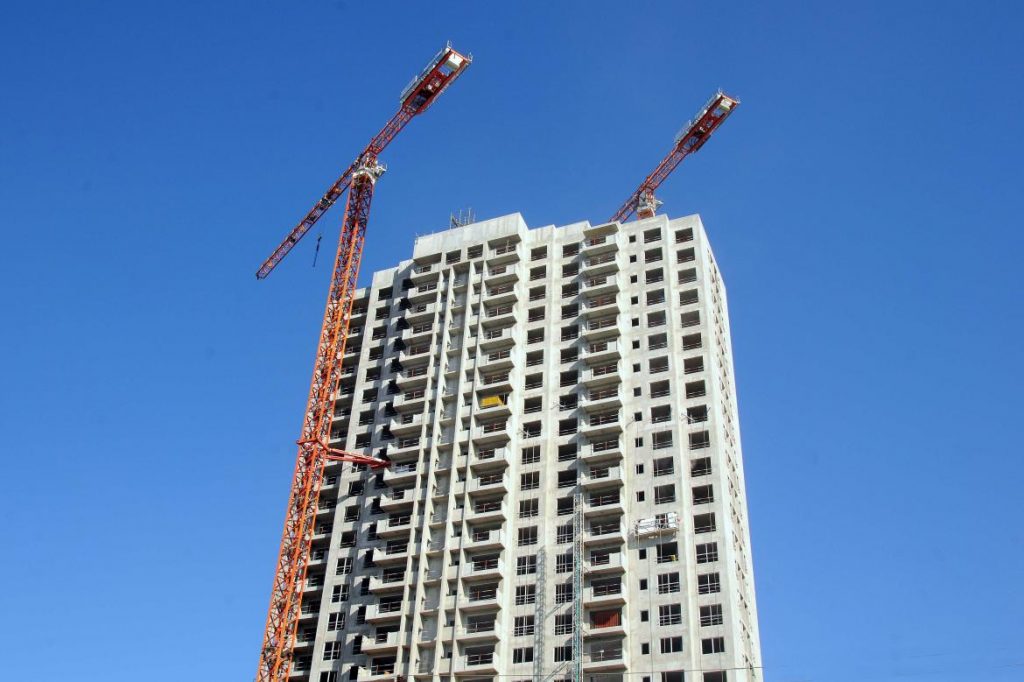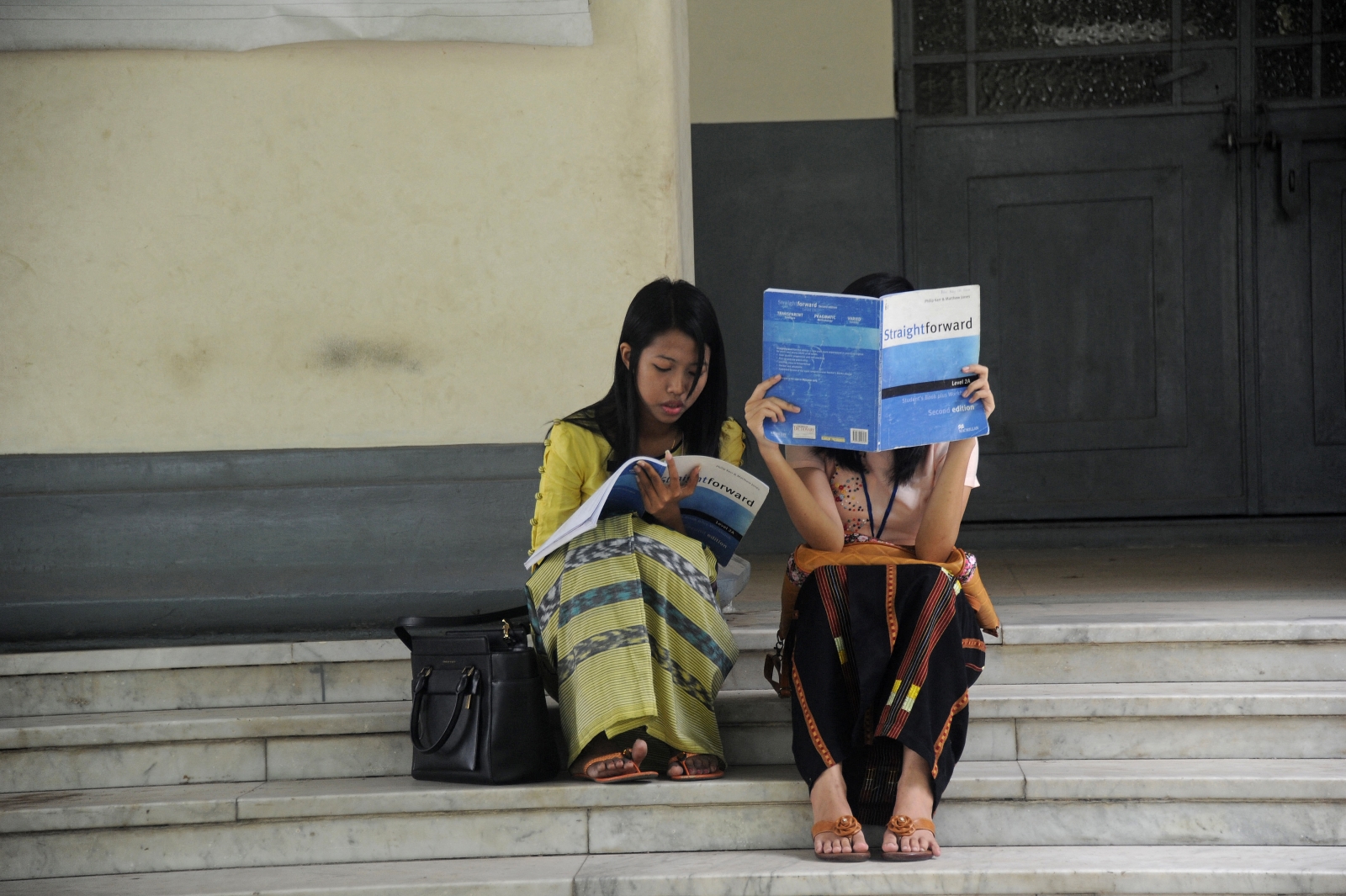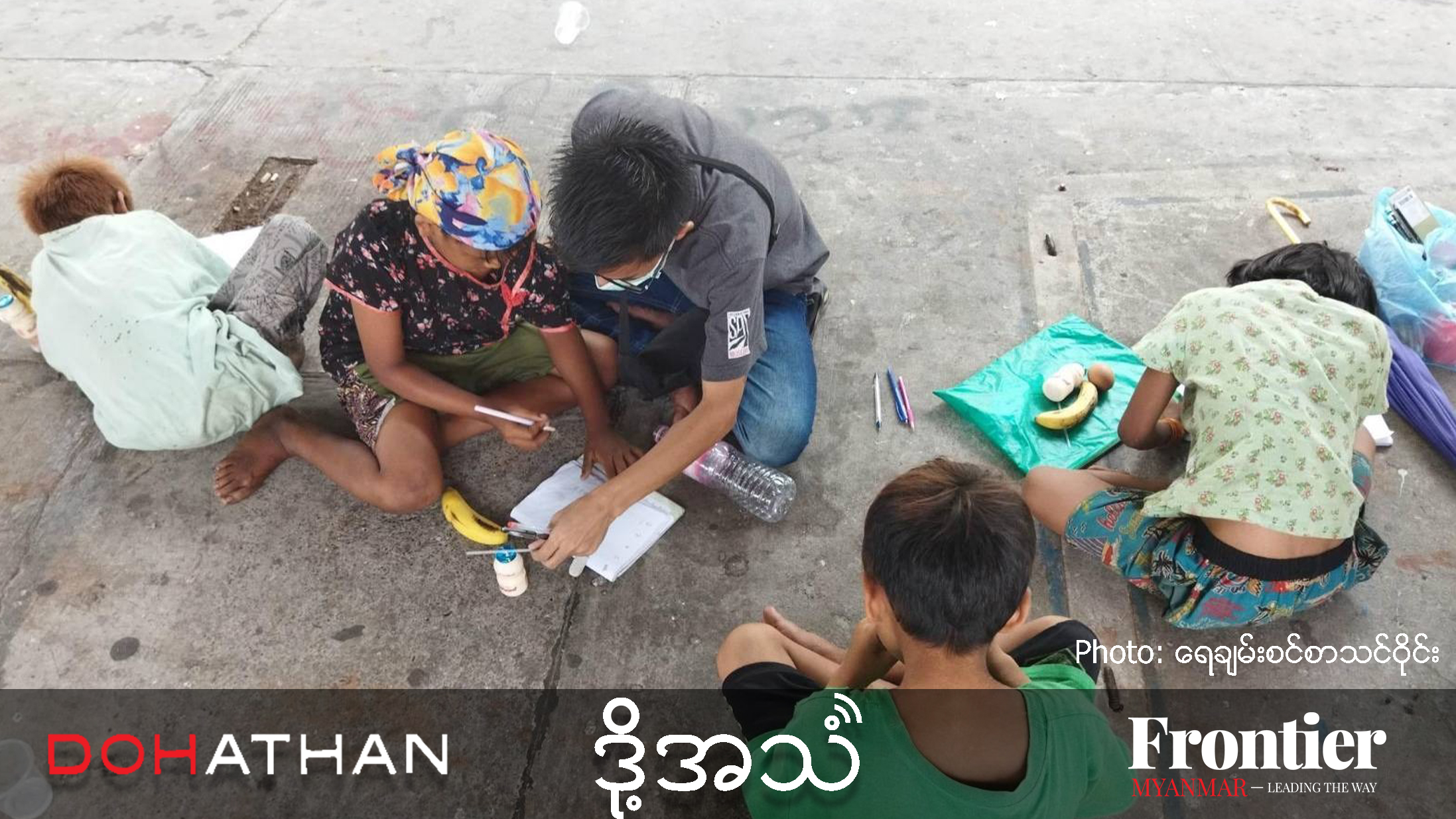The Purrfect English Youth Essay Competition asked Myanmar youth, after the November 8 election, to imagine their country in five years’ time. Winning writer May Myat Noe Khant imagines a future in which urbanisation and increased foreign investment privilege a lucky few but leave the rest behind.
By MAY MYAT NOE KHANT | FRONTIER
Just before the holiday break, Frontier Myanmar took part as a judge in a youth writing competition sponsored by Purrfect English, an English language school and career counselling centre for Myanmar youths. The competition asked entrants to respond to the prompt, “As a youth citizen of Myanmar, what is your outlook for the next five years? How do you envision Myanmar in 2025?”
Hundreds of entries were narrowed to 10, from which a panel of judges selected their top picks. Below, University of Yangon student May Myat Noe Khant imagines a future in which increased urbanisation lifts some boats but allows others to sink.
People say that good things take time, but how much time and effort do we need to invest to see the fruits of change? It was a chilly day in November when this question kept my mind occupied. On the way back from the airport, after picking up a senior executive from our overseas headquarters – who was visiting Myanmar for the first time since 2020, when the world was gripped by the COVID-19 pandemic – she asked me, “What major changes have you seen in Myanmar over the last five years?”
I could not give a satisfying answer at the time, except that the 2025 election had just ended with surprising results. We briefly discussed current Myanmar and world politics. Finally, four years of studying social science seemed to be paying off. But the question of change still lingered in my mind throughout the day. The only answer I could provide was that ethnic parties had risen in popularity to dominate in their respective states and take more seats in the parliament compared to the 2020 election. We could say that our country was finally on the right track to achieving its long-lost Panglong dreams.
After a long ride through Yangon’s slow-moving rush hour traffic, we arrived at our destination – a penthouse by Inya Lake. From the penthouse, the view of Shwedagon Pagoda and the busy Yangon streets was mesmerising, so much so that I was left momentarily breathless. I wouldn’t mind waking up to that view every day. Ironically, the executive had complained to the manager because she was unsatisfied with the view, then had her penthouse room switched, which seemed an unnecessary upgrade – both views were similar. Decades ago, we wouldn’t have needed a fancy penthouse to see the stunning view, but due to increased urban development, the views from nearby, older apartments have been blocked by fancier condominiums, putting a price tag on the view. In that moment, it dawned on me that capitalism meant the rich getting richer and the poor remaining poor. While I was lost in thought, the executive interrupted to ask whether the shop where she had her first mohinga was still there.
The next day, she and I went to an on-campus recruitment day at the University of Yangon as company representatives. The venue, the university’s recreation centre, was filled with enthusiastic students queuing in front of the booths of various companies, which inspired nostalgic memories from my days at university. Looking around, I saw many local and foreign companies scouting fresh graduates and seniors, offering them a wide range of job options to choose from. Back in my time at university, we did not have any job fairs at which to explore opportunities after graduation. It’s fair to say that the education sector has improved in recent years. On the other hand, the increase in foreign investment and foreign companies means local businesses are suffering. It hasn’t been long since these businesses recovered from the global pandemic.
That evening we joined a campus tour. When I saw the maintenance team renovating signboards on Chancellor Road, I wondered if replacing them still cost K9 million like it did five years ago. I was curious to find out the truth but hesitated to ask in front of all the foreigners on the tour. All I could do was hope that many fewer transactions were taking place under the table. It’s significant that in the last five years, fewer people have been falsely accused of crimes. It seems the angel of justice no longer turns a blind eye to prejudice against innocent victims anymore, such as in the well-known “Victoria” child rape case six years ago, in 2019.
The next day, I found myself sitting in my office in front of a computer. I was back to a typical, sedentary urban lifestyle. Although advances in technology have made our lives more convenient than ever, there are downsides – especially for people living in rural areas in such an agricultural country. These advances have meant that most manual labour has been replaced by machines, and with less need for people, many have been left unemployed. The only option left is for them to leave their home towns and villages for big cities in search of jobs. But it is not easy for them to secure a job, considering the already-high unemployment rate among fresh university graduates in cities – despite the increased foreign investment the country has received.
When the clock struck five, I travelled home on public transport and noticed the same old exhausted faces of the working-class citizenry, striving each day to make a living. In the last five years, the city has become more developed in many ways, but the ride home still feels the same. I suppose that, ultimately, Yangon and its people remain the same, despite fears that growing urban development would take away what makes the city feel like home to us. For me, it’s still the Yangon we’ve always known.







